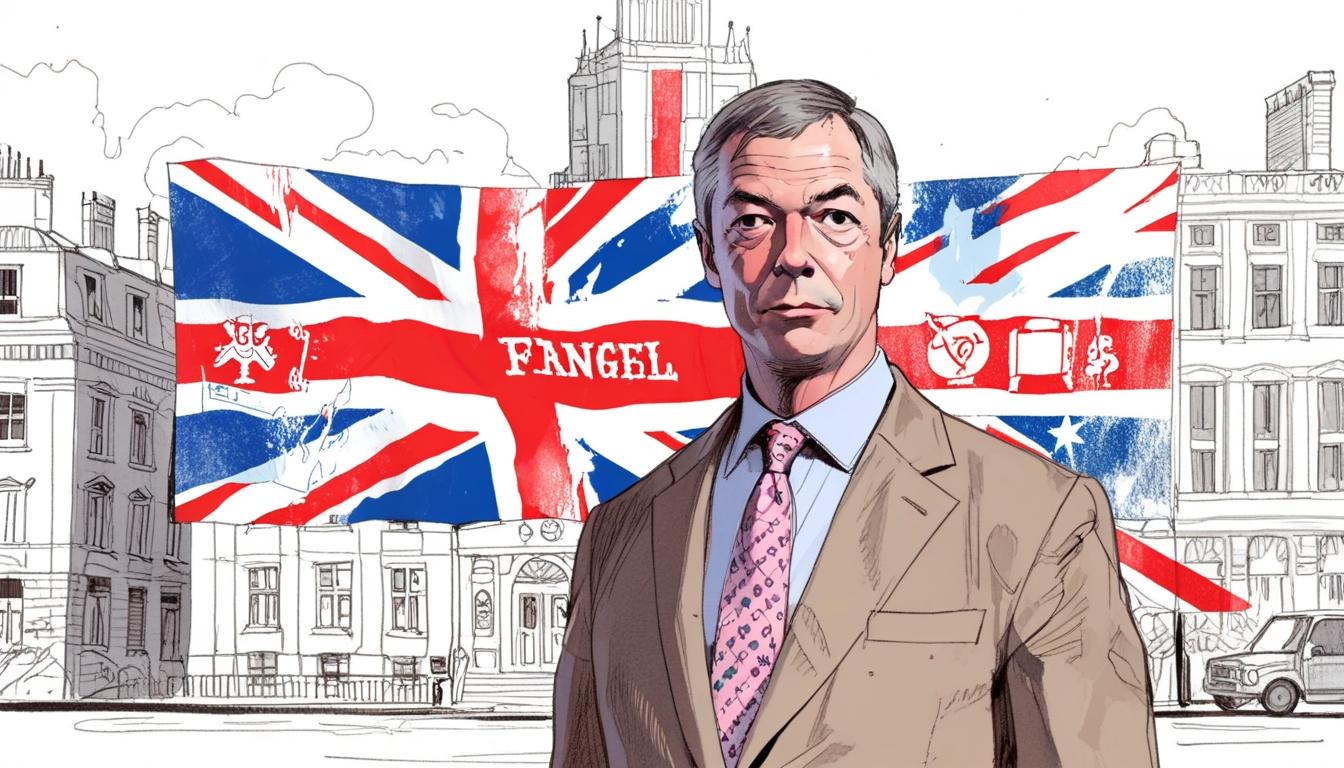Nigel Farage has once again made headlines as the leader of a party that has asserted itself dramatically following the dismal performance of the traditional political landscape in the recent elections. With a triumphant capture of ten councils, two metro mayoralties, and a parliamentary seat in Runcorn, this party’s rise poses a serious challenge to the Labour and Conservative stranglehold over British politics. The Conservatives, in particular, suffered staggering losses—over 600 seats—while Labour, despite emerging victorious under Kier Starker, still shed around 186 seats, indicating a retreat that should alarm any party entrenched in the status quo.
A cornerstone of the party’s platform includes a staunch commitment to public ownership of essential services. Polls reveal that a remarkable 87% of its supporters back public control of water, alongside similar support for public ownership of rail services, Royal Mail, and energy. With inflation wreaking havoc on household budgets and public service standards plummeting, these sentiments reflect a surging demand for accountability that the Labour government seems ill-equipped to address. Instead of the promises of stability, the new administration risks abandoning the very principles that support the public’s needs.
Concerns also grow over the looming threat of privatisation, particularly regarding the National Health Service (NHS)—a cherished institution within British society. Despite an overwhelming 82% of supporters opposing privatisation, Farage’s past musings about an insurance-based healthcare model cast a shadow over his party's commitment. With suggestions aligning closely with cost-incurring European models, the core of the NHS remains under threat. His dramatic pledge to eliminate NHS waiting lists within two years, while proposing rigid austerity measures and slashing £50 billion from other departments, raises critical questions about the feasibility of such claims amidst an already strained healthcare system.
The transformation witnessed during the recent elections transcends mere numbers; it represents a shift towards a populism that challenges the existing political order. Key policies reflect a right-wing agenda resonating deeply with voters disillusioned by both Labour's and the Conservatives’ inability to deliver meaningful change. The party's assertive anti-immigration stance and rejection of net zero policies, paired with aggressive economic interventions like tax cuts for small and medium enterprises and a repeal of inheritance taxes, indicate a rightward tilt that appeals to a growing constituency yearning for alternatives to the political establishment.
As Labour scrambles to reclaim its footing and the Conservatives struggle with internal disarray, positioning themselves as a serious contender on the national stage, the challenge remains for Farage’s party to uphold its promises. With local councils now under their control in areas once deemed Conservative bastions, the pressure mounts for them to deliver tangible results or risk alienating the very voters who have driven their ascent. The upcoming scrutiny on their governance will be pivotal in determining whether this significant political upheaval heralds a lasting transformation or fades into history.
Ultimately, the implications of the party's rise go far beyond election victories; they signal a fundamental recalibration of British governance and the management of public services. As the political landscape evolves and the new Labour government stumbles over its commitments, the dialogue surrounding these critical issues will shape the trajectory of policy-making and public engagement for years to come. The stage is set for significant upheaval, and whether this party can convert its electoral momentum into concrete change remains to be seen.
Source: Noah Wire Services
